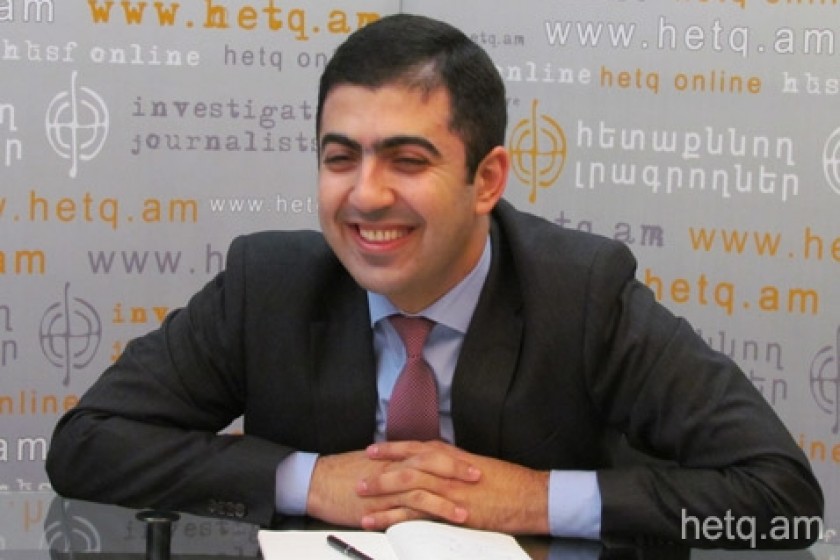Re: Who owns what in Armenia
PS: Vartan Ayvazyan is "official low class thief" style, ex natural resources minister, having privitased dozen of mines to himself, and fined a record 35 Million USD by a US court...., an ecology minister, enemy of nature.
Seems he and some of his oligarkh friends (name of LFIG repeatedly quoted on this chapater too), found an other lucrative sector, by definition individual work sector. Nevertheless, they have decided to force elimination of 'prived' dentists, to impose big structures of their own... things have arrived at a level, where non monopolistic spheres by definition are forcefully and illetrately being dismenteled...
-------
VARDAN AYVAZYAN'S REVELATION
Business - Wednesday, 06 February 2013, 16:02
Head of NA standing committee on economic issues Republican Vardan
Ayvazyan said today in parliament that the purpose of boosting taxes
on dentists is to reduce the number of dentists and consolidate this
branch. In answer to worries that dentists will eventually emigrate,
Ayvazyan said worried but answered with a question whether it worries
anyone that the number of dentists in Armenia is much higher than
in the United States. Reporters asked why they adopt a law without
discussions with beneficiaries. He said that the National Assembly
discussed this law for one and a half months. There are experts in
parliament, plus this is a law initiated by the government, so the
government was supposed to carry out public hearings, said Ayvazyan.
Vardan Ayvazyan entered into a debate with Artsvik Minasyan of ARF
who said that dentists used to pay 15,000-20,000 AMD for each dental
chair, after the amendments they will have to pay 80,000. Ayvazyan
said he would like to see a document signed by the minister of health
confirming that dentists used to pay 15,000-20,000 because he did not
know about it. Artsvik Minasyan proposes to tax dentists not per dental
chair but per employee. Vardan Ayvazyan agreed, and Minasyan informed
that the ARF will come up with a proposal in the National Assembly.
----------
PS: Vartan Ayvazyan is "official low class thief" style, ex natural resources minister, having privitased dozen of mines to himself, and fined a record 35 Million USD by a US court...., an ecology minister, enemy of nature.
Seems he and some of his oligarkh friends (name of LFIG repeatedly quoted on this chapater too), found an other lucrative sector, by definition individual work sector. Nevertheless, they have decided to force elimination of 'prived' dentists, to impose big structures of their own... things have arrived at a level, where non monopolistic spheres by definition are forcefully and illetrately being dismenteled...

-------
VARDAN AYVAZYAN'S REVELATION
Business - Wednesday, 06 February 2013, 16:02
Head of NA standing committee on economic issues Republican Vardan
Ayvazyan said today in parliament that the purpose of boosting taxes
on dentists is to reduce the number of dentists and consolidate this
branch. In answer to worries that dentists will eventually emigrate,
Ayvazyan said worried but answered with a question whether it worries
anyone that the number of dentists in Armenia is much higher than
in the United States. Reporters asked why they adopt a law without
discussions with beneficiaries. He said that the National Assembly
discussed this law for one and a half months. There are experts in
parliament, plus this is a law initiated by the government, so the
government was supposed to carry out public hearings, said Ayvazyan.
Vardan Ayvazyan entered into a debate with Artsvik Minasyan of ARF
who said that dentists used to pay 15,000-20,000 AMD for each dental
chair, after the amendments they will have to pay 80,000. Ayvazyan
said he would like to see a document signed by the minister of health
confirming that dentists used to pay 15,000-20,000 because he did not
know about it. Artsvik Minasyan proposes to tax dentists not per dental
chair but per employee. Vardan Ayvazyan agreed, and Minasyan informed
that the ARF will come up with a proposal in the National Assembly.
----------








Comment